From studying how to get iPS cells to beat like a heart to stimulating retinal regeneration in zebrafish, six outstanding Notre Dame undergraduate students participated in a summer’s worth of research thanks to the Center for Stem Cells and Regenerative Medicine’s Summer Undergraduate Research Fellowship (SURF).
Through the generosity of several donors, these students were able to pursue cutting-edge research in the College of Science and the College of Engineering.
“The opportunity for these bright and talented undergraduates to pursue full-time research during the summer is a valuable component of their undergraduate experience,” says Professor David Hyde, Director of the Center for Stem Cells and Regenerative Medicine. “We are fortunate to have donors that understand and appreciate the value of undergraduate research and support our mission in this area. The opportunity for undergraduates to contribute to a research program is a vital part of their education and makes them more desirable to medical and graduate schools after graduation.”
During the program, students gained experience pursuing their own research projects outside the traditional structure of the classroom, with most citing autonomy as one of their favorite aspects of the program.
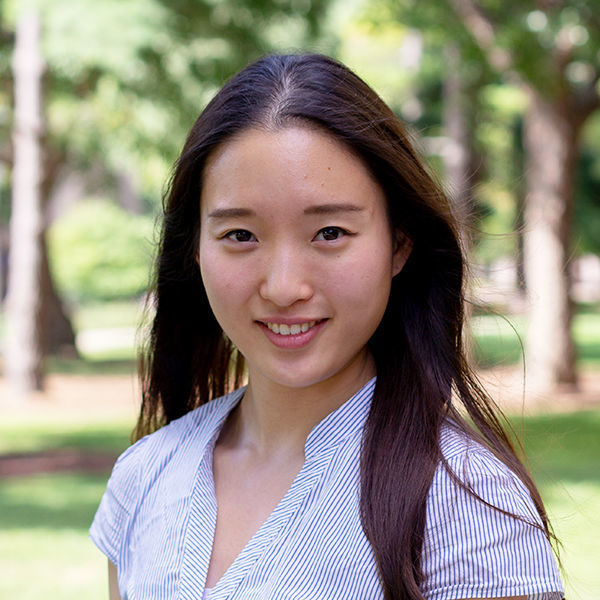 Jenny Jang
Jenny Jang
Senior Science-Business major, Seok Hee (Jenny) Jang, worked in the lab of Richard Dahl, Adjunct Professor of Biological Sciences, and Assistant Professor of Microbiology and Immunology at the Indiana University School of Medicine.
Jenny researched hematopoietic stem cells focusing on exploring the specific ways in which the hematopoietic stem cells can differentiate into B- and T-cells. Her work mostly involved and focused around proteins and how certain proteins regulate the differentiation before the stem cells develop to become mature blood cells.
“This summer research has given me a solid glimpse of what it is like to work in a laboratory and the amount of effort and precision this work requires. Through my experience over the summer, I have become proficient in countless skills that I would not have gotten the chance to learn over the school year. In fact, now I can contribute more to my research lab over the school year with the skills that I have acquired. The summer research has also opened up more opportunities for me to pursue after graduation," said Jenny.
After graduation, Jenny plans to pursue an M.D.
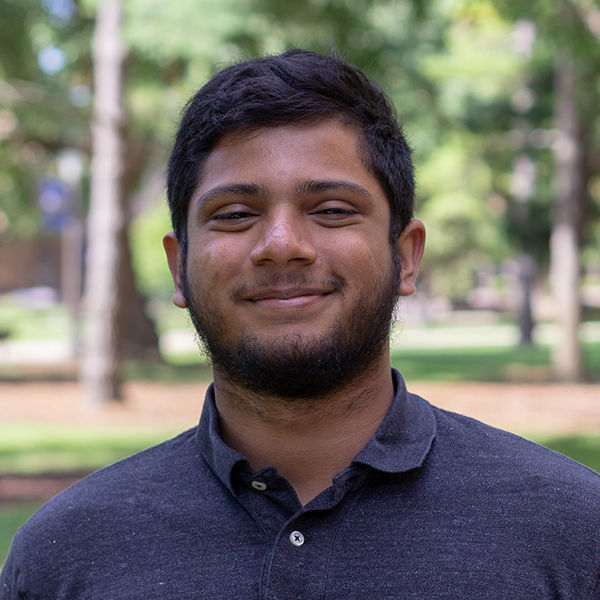 Jacob Kalathoor
Jacob Kalathoor
Jacob Kalathoor, a junior majoring in Biological Sciences, worked in the lab of David Hyde, Professor of Biological Sciences and the Rev. Howard J. Kenna, C.S.C. Director of the Center for Zebrafish Research. Under the guidance of Dr. Hyde and Dr. Manuela Lahne, Research Assistant Professor, Jacob continued a multi-year long project studying the role of Myosin Heavy Chain 10 (MYH10) during Interkinetic Nuclear Migration in the regenerating zebrafish retina.
“In addition to all of the research that was accomplished, I was also able to grow immensely as a person and as a college student this summer. Most students do not have the opportunity to start their research career as early as I have. Working full time in a laboratory setting provided me with invaluable skills, from designing my own experiments to being able to communicate my research clearly,” he said. "Being able to work full time also allowed me to get an idea of what graduate school would be like, and I was able to confirm that it is definitely a career path that I am determined to proceed with."
After graduation, Jacob plans to enter a combined M.D./Ph.D. program, with his doctoral research focus being in regenerative genetics.
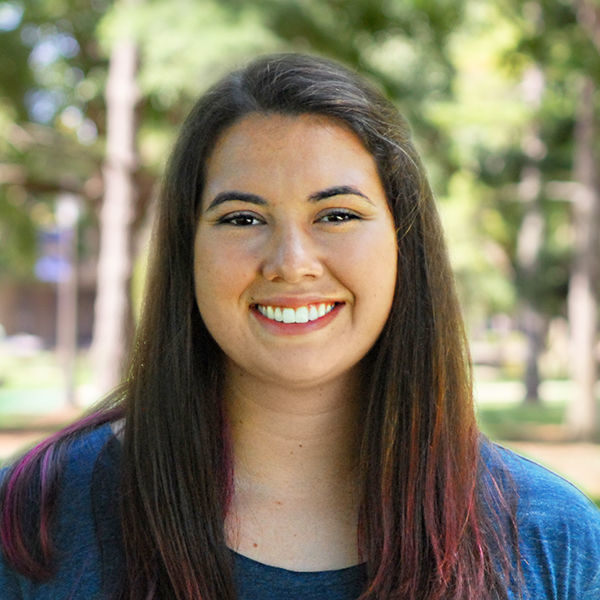 Reina Koran
Reina Koran
Reina Koran, a junior Biochemistry major, worked with David Hyde and Senior Research Scientist, Leah Campbell, evaluating how zebrafish retinas respond to damage with and without the help of a specific protein, TNFR.
“I not only gained professional experience and skills this summer, but I experienced a lot of personal growth. I grew in relationship not only with those who I worked with in the lab, but also with those I lived with, and others who also had the good fortune to work on campus this summer. These relationships enriched my summer experience and expanded my support network for the school year. Additionally, I fell into deeper love with my field of study and am excited to begin this academic year with more confidence and excitement than ever before. It truly helped shape my summer and my studies going forward," she said.
After graduation, Reina plans to pursue a Ph.D.
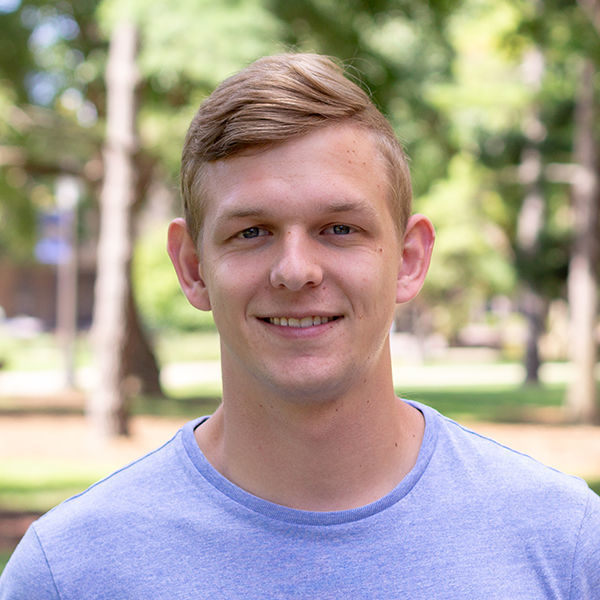 Stephen Landy
Stephen Landy
“This summer, I had the opportunity to further refine and characterize the myocardium-on-a-chip that I have been developing. I spent a significant amount of time refining the fabrication process to achieve higher cell density, which makes for a more physiologically relevant model of heart tissue. I am still in the early stages of using the device to test the efficacy of our collaborator's new organ storage solution, but I am continuing that study during this academic year with the goal of publishing before I start medical school," said Stephen Landy, a senior majoring in Mechanical Engineering who worked in the lab of Pinar Zorlutuna, Associate Professor of Aerospace and Engineering.
“My research experience this summer helped me transition to a more independent role within my research group. Instead of frequently reporting to more experienced members, I was able to work independently on my own project and develop my problem solving and critical thinking skills. This will serve me well as I transition into medical school and take on further research endeavors,” he said.
After graduation, Stephen plans to pursue an M.D.
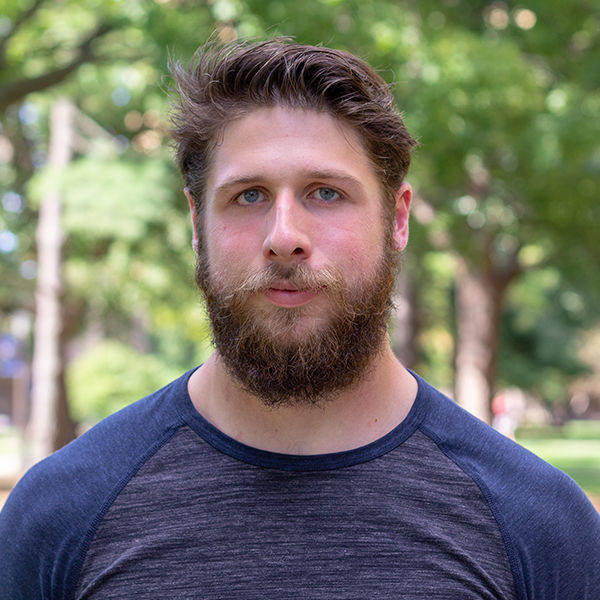 Seth Tautges
Seth Tautges
Seth Tautges, a senior Chemical Engineering major, worked with Jeremiah Zartman, Associate Professor of Chemical and Biomolecular Engineering, where he had the opportunity to study the genetic causes of both Down syndrome and breast cancer.
“I was able to develop methods to test possible chemical agents to combat the development of these diseases, leading to a better understanding of the causes and development of both diseases in general. The preliminary results provide hope that in the future, better pharmaceutical treatments might be able to be developed for both diseases," explained Seth.
"As I move forward into the fall semester, I have been given the opportunity to lead this project even further and I would not have been able to do so without the skills I learned this past summer. Due to the research I have completed, both my critical thinking and problem solving have improved greatly and I am more comfortable taking charge leading a research project. These skills will not only aid in future research, but also in my future plans of medical school, and eventually as a practicing physician."
After graduation, Seth plans to pursue an M.D. with focus on trauma surgery.
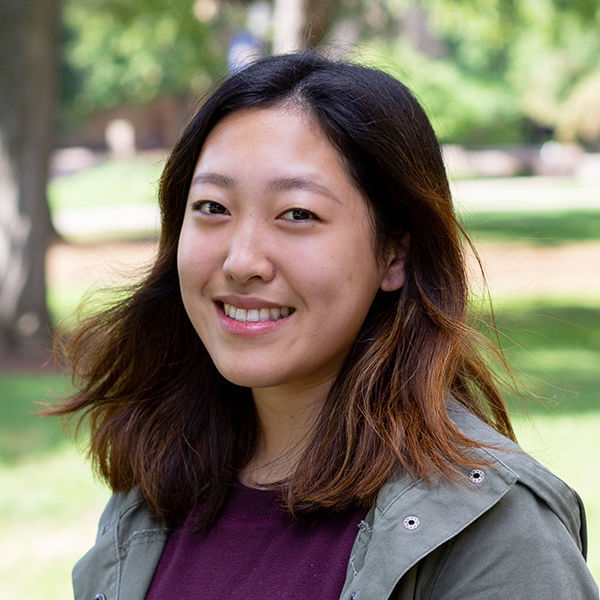 Grace Zhang
Grace Zhang
Grace Zhang, a sophomore majoring in Biological Sciences, worked in the lab of David Hyde, Professor of Biological Sciences and the Rev. Howard J. Kenna, C.S.C. Director of the Center for Zebrafish Research. Under the guidance of David Hyde and Manuela Lahne, Research Assistant Professor, Grace worked on two projects.
The first researched retinal damage-induced vision loss and remedies that may be developed to overcome retinal illnesses in human retinas and the need for cell type-specific markers that distinguish ganglion cells from different types of amacrine cells.
The second was a project that focused on investigating whether Notch signaling regulates Atoh7 expression.
“Conducting research every day in the Hyde Lab during the summer really prepared me for continuing my work in the upcoming school year. I've become familiar with using a lot of lab equipment, such as the confocal microscope, cryostat, epifluorescent microscope, and PCR machines. I've also gained many lab skills such as fin clipping, RNA Isolation, injections, and collecting/fixing zebrafish eyes. This research has further encouraged me to pursue academic medicine and possibly neurology. Overall, this summer has been a great experience for me," she said.
After graduation, Grace plans to pursue a combined M.D./Ph.D.